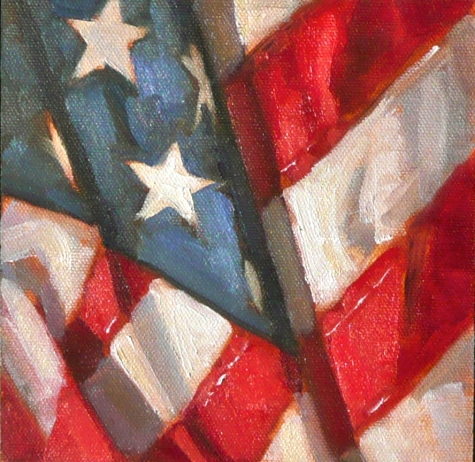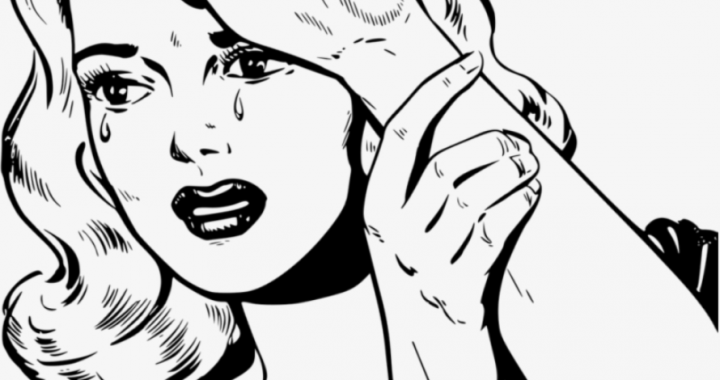(Art by Dana Cooper)
Today’s exercise again comes from Charles Johnson‘s book, The Way of the Writer, where he credits much of his early development to his late mentor John Gardner:
Describe a character in a brief passage (one or two pages) using mostly long vowels and soft consonants (o as in “moan,” e as in “see”; l, m, n, sh, etc.); then describe the same character using mostly short vowels and hard consonants (i as in “sit”; k, t, p, gg, etc.). The purpose of this exercise, Gardner wrote, is to help the student see that “describing a scene in mostly long vowels and soft consonants achieves an effect far different from that achieved by a passage mostly in short vowels and hard consonants.”
Here is my example for a character named Shea-Patrick:
You would probably see a photo of Shea-Patrick and immediately say to yourself he is from another world. He flew a private plane on holidays. He counted seeds for a living. And his smile resembled anything you could think of. Every spring growing up, Shea rode east with his family to their hacienda in a hybrid, five-seat, three-door caravan (the driver’s door wouldn’t open; “Like the USPS,” his mother teased). On those warm adventures to the farm, Shea realized he wasn’t made for the noise, the commotion, or the heaviness of a big city whose concrete represented nothing of what Shea loved. He preferred wide open spaces to roam on bare feet, quiet evenings to appreciate the nighttime symphony of animals, and high trees in place of shoddy skyscrapers. When he found alone time away from his folks, he imagined himself miles above the highest leaves. He even outgrew the tree-house his father and him had made their fourth spring away from the city, and so he would climb onto its roof to smell the clean atmosphere yet unpolluted. Shea remembers feeling how all he needed was a brush of golden sunlight over his forehead to cure any illness he might have carried back from the city. His was a troubled adolescence, though, when on a cloudy day a well-known company leveled his beloved forest. The tragedy filled the poor boy with animosity for his hometown, which had subsidized the company since its founding. However ironic, when Shea-Patrick finally grew old enough to leave his folks, he failed to move. Instead, he became bitter and lived the remaining years of his life in the city. Barely.
He looked like from another planet, sure, but what no one contested was that Patrick was American, through and through. He didn’t have a gun, but without exception he took his baseball bat wherever he went. He would store it in the trunk of the Mustang he had bought with the money he’d made from selling his parent’s car. He would spin those tires from block to block, hood to hood, in the Midwestern burg, locale of his last years, calling attention to himself, blaring classic rock, and honking his car horn set to the tune of the Star Spangled Banner. From the darkest cellar of the farthest apartment building, dwellers used to hear that sputtered “Oh Say Can You See” and cringe at the song they used to love. Of course, this fact caused a lot of resentment among the citizens. Residents would (as often as the horn) together yell curses at Patrick from their doors whenever he lurched on their the block. Patrick turned infamous himself. A friend of a friend told me his cousin’s cousin had confronted Patrick, who had stopped at a crosswalk, some autumn long-ago. He asked Patrick to quit honking that damn horn all the damn time. Patrick, I heard, grinned like a congressmen getting a kickback, and stepped out after pulling up the handbrake. When the cousin of the cousin of my friend’s friend saw Patrick stood six inches taller than him, the dude winced back at Patrick and, whispered, “Mind not honking the horn so…” He didn’t finish his sentence when Patrick had started walking back to his trunk to pull out the thick wooden slugger. Stick in hand, Patrick asked the dude softly, “Wanna?” His brow, pimpled and crimped, must have looked similar to the Stars and Stripes. The other kid ran away quick, and of course Patrick went off too with little trouble. Unlucky for Pat, for all his sin, that was his last word. A car crash not two minutes after ended him and the Mustang. The most odd fact about the incident was how hung up on his car antenna had been the national flag, which he seldom took off. It was the sole item to make it undamaged from the collision. Some pedestrians who saw the crash mentioned to the television journalist that they had never witnessed such a wreck, and that a puddle of talk had already begun about how that poor ass in the Mustang had it coming for sure and gone to hell burnt to a Chicken Nugget crisp.
Was your impression of Shea-Patrick different in the second paragraph from the first? Of course, aside from the vowel/consonant change, there is plot intention to account for the shift in impression. But in writing it, what came first was the fidelity to the sound-change; the words that form the description flowed second.
Please leave your character description, with attention to sound, in the comments below.




